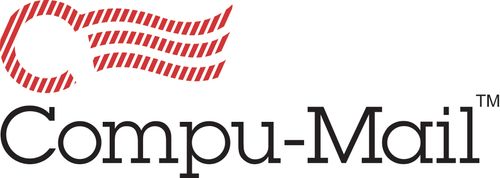Fact: The earth is going through drastic environmental changes and unless we act fast, we’re all headed to our inevitable doom. Fortunately, the manufacturing of paper isn’t one of the culprits that are destroying the planet. Two thousand years of paper making have led to many innovations and practices that are safe and even beneficial to Mother Nature.
Below are some common misconceptions about paper manufacturing, and we’re here to bust these myths with hard, irrefutable facts.
Myth 1: Going paperless saves forests.
Fact: In North America, there are more trees grown than harvested. The US alone has seen its net forest area increase by about 2% from 752 million to 765 million acres between 2007 and 2017, while Canada has seen an even better 5% increase in the same period. What’s more, the majority of paper manufacturers encourage forest sustainability through environmentally conscious practices like purchasing and using certified wood fiber.
Myth 2: Paper is a wasteful product.
Fact: On the contrary, paper is one of the most recycled products in the world. In fact, the paper recovery rate in the US back in 2019 was at 66.2%, with corrugated boxes being the most recovered at 92%. By comparison, recycling rates for plastics, glass, and metals were at a measly 9%, 26%, and 34%, respectively. What’s more, paper that isn’t recycled gets decomposed and provides nutrients for other plants to grow.
Myth 3: The manufacturing of paper consumes an excessive amount of water.
Fact: While it’s true that paper production is dependent on water, relatively little is consumed. 90% of the paper water gets returned to its source after thorough cleaning that conforms with the clean water quality criteria. What’s more, this water gets used over 10 times before getting treated, ensuring that little is wasted.
Myth 4: Paper is bad for the environment.
Fact: Absolutely not. Paper is one of the few truly sustainable products since it’s made from wood, a natural resource. Paper manufacturers in the US adhere to third-party certification standards to make sure that the paper they make is sourced sustainably and responsibly. Otherwise, they cannot operate.
Myth 5: Electronic communication is more environmentally friendly than paper-based communication.
Fact: While you don’t exactly throw away your smartphone and computer after using them once unlike paper, electronic gadgets pose a far greater threat to the environment. The fact is that e-waste is toxic and nonbiodegradable. Manufacturing a single computer alone requires 240 kg of fossil fuels, 22 kg of chemicals, 1.5 t of water, and numerous precious (gold and platinum) or rare earth minerals (tantalum, lanthanum, neodymium, yttrium).
Myth 6: Paper production is a major cause of global greenhouse gas emissions.
Fact: Just like any other industry, paper manufacturing consumes a lot of energy but they’re mostly renewable. Carbon emissions from pulp and paper mills are surprisingly low – in fact, 65.2% of the energy that powers paper manufacturing plants here in the US is renewable biomass energy. Biogas and hydroelectricity are also widely used.
Myth 7: There is a limit to the number of times paper can be recycled.
Fact: While fiber quality does deteriorate as paper gets recycled repeatedly, becoming weaker and shorter thus making it difficult to bond into new paper, the solution is simple: adding fresh fibers into the mix. The addition of fresh fiber prolongs the paper’s life cycle.
Myth 8: Digital is always the preferred means of communication
Fact: Almost everyone has smartphones and laptops, but many consumers still value traditional paper-based communication. Here are some numbers worth knowing: 53% of U.S. consumers find it easier to track and manage their expenses when the information is printed on paper. 64% of U.S. consumers also believe that their electronically stored personal information is at a much higher risk of getting compromised, so they’d rather keep prints of important documents at home.
Speaking of printing, let Compu-Mail handle all that for you and your business. From postcards and envelopes to brochures and personalized letters, we guarantee to keep your printing costs low and the quality high.





